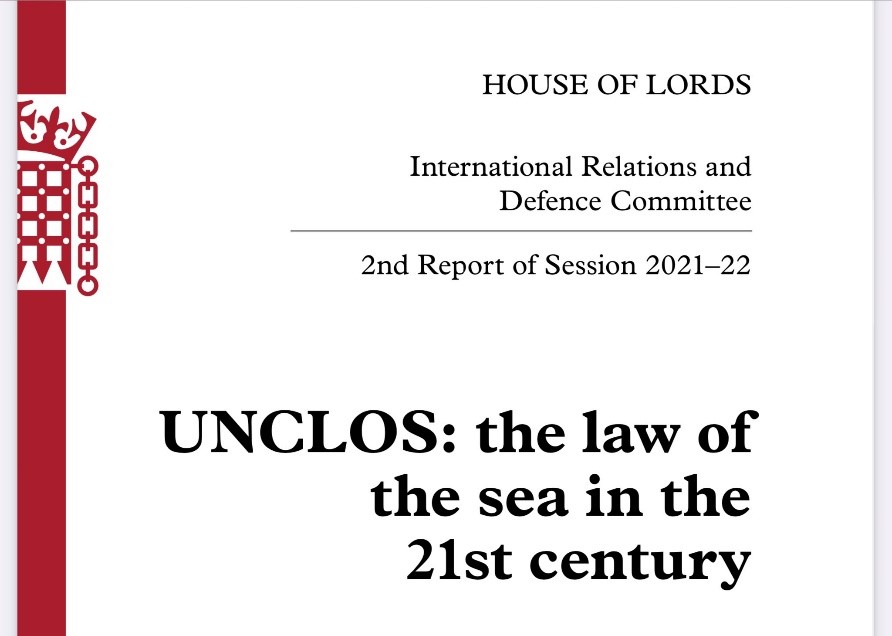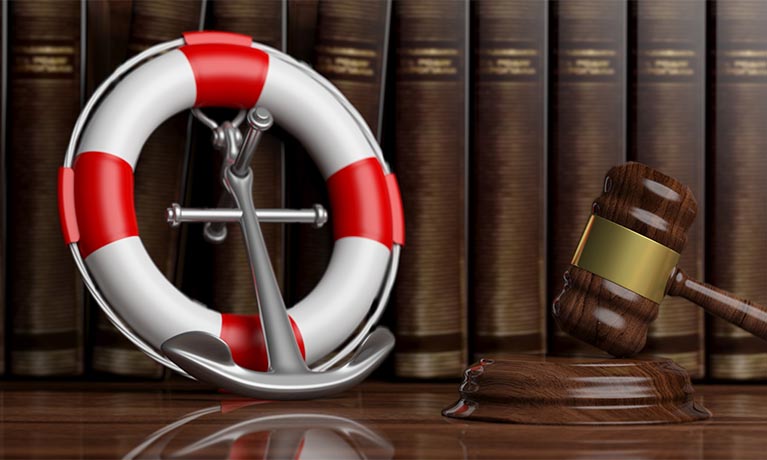By Dr Ioannis Chapsos, Dr James Malcolm and Dr Robert McCabe, Assistant Professors, Centre for Trust, Peace and Social Relations (CTPSR)
What is the Problem?
The negotiation and ratification of the United Nations Convention on the Law of the Sea (UNCLOS) 1982 was a considerable achievement. It standardised states’ claims to maritime zones and the resources within them and provided states with mechanisms for settling disputes. UNCLOS is not perfect, however, and new evidence suggests that if UNCLOS is not supplemented, nor its provisions further developed, it will no longer be fit for purpose in the 21st century. The provisions of UNCLOS are not always complied with in practice, despite its adoption by most states. An overarching challenge is that of enforcement and the extensive use of ‘flags of convenience’, which has significant implications for maritime security and the protection of human rights at sea. There are also gaps in UNCLOS because more contemporary issues such as climate change and rising seas levels were not well understood, while new technologies such as maritime autonomous vehicles were only developed after UNCLOS was drafted.
What is the research about?

The House of Lords’ International Relations and Defence Committee initiated an inquiry to determine whether UNCLOS remains fit for purpose forty years after its agreement. The ‘framework’ nature of the convention allows for the development of more detailed regulation and guidance to be delegated to other international bodies such as the International Maritime Organization. This means that UNCLOS has been considered a ‘living treaty’, which can change to reflect modern circumstances. This is now being tested by new concerns and new uses of the sea. CTPSR’s maritime security team responded to the inquiry and their submitted evidence informed relevant sections of the report which was published on 1st March 2022, titled ‘UNCLOS: the law of the sea in the 21st century’
What did our research find?
- International law sits alongside domestic law, and it is important to acknowledge that these are not always in alignment. For example, in relation to port security, requirements associated with the International Ship and Port Facility Security Code (ISPS) are implemented and enforced differently dependent on the location of the port. In addition, the Code sits alongside policy related to other issues such as border control.
- The urgent need to update the outdated convention, is highlighted by the fact that more contemporary maritime security challenges (e.g. cyber threats and human trafficking) are not referred to in UNCLOS and those that exist need to be refined (e.g. piracy).
- Many ships transiting the oceans and especially piracy high risk areas, carry onboard privately contracted armed personnel to enhance their security. This makes the enforcement of UNCLOS even more problematic, as these are private, non-state actors and there is no provision within UNCLOS as to the responsibilities, jurisdiction, authority, or regulation of the private maritime security sector.
- Climate change will result, among other things, in sea-level rises which will change the geography and coastlines of coastal states and their respective maritime zone delimitations. Islands which currently extend coastal states’ territorial waters and Exclusive Economic Zones (EEZ) could for example fully submerge in the long term, so coastal states’ sovereign territory and EEZ would shrink and be redefined because of climate change.
- Focusing on efforts to strengthen the human rights aspect of the convention, ‘UNCLOS article 99: Prohibition on the transport of slaves’ should be updated and apply to modern slavery and human trafficking by sea. The article refers to ‘slave trade’ but consideration should be given especially to ways in which modern slavery is understood differently and how this provision could apply to challenges such as human trafficking by sea and forced labour, with particular focus on the fishing industry. Furthermore, transhipment vessels are frequently utilised by the (illegal) fishing industry to transport trafficked victims to/from fishing vessels. UNCLOS article 99 could be updated to provide an additional tool to the international community when flag states can’t adequately prevent and punish the transport of ‘modern’ slaves, and allow authorities to board ships suspected of conducting slave trade/ human trafficking and conduct any necessary checks.
- Despite presenting a codified legal definition of maritime piracy and urging all nations to cooperate in the repression of piracy, UNCLOS, has weakened counter-piracy activities rather than enhanced them. There is a lack of clarity around issues of jurisdiction; ‘hot pursuit’; the ‘private ends’ motivational clause; the ‘two vessel’ requirement; and a failure to impose a legal obligation on states to suppress piracy in their territorial waters.
- The introduction of autonomous vessels, which could be potentially hacked remotely and result in the whole vessel being stolen without being physically boarded would not legally classify as an act of piracy under UNCLOS at the moment. As such, UNCLOS should follow the advancement of technology, consider the vulnerabilities that cyber threats could pose to autonomous maritime vehicles’ navigational systems and proactively address this legal lacuna.
Why is this important?
Technology advancements in conjunction with contemporary challenges such as climate change, modern slavery and cyber threats to name just a few, significantly affect the maritime domain. UNCLOS, as the overarching maritime governance mechanism, is evidently outdated in this context. As such, UNCLOS should be updated into a more contemporary convention and become a legal instrument that could better equip states in their efforts to address contemporary maritime security challenges and enhance human rights at sea.
Where can I find this research?
Full report available from: https://committees.parliament.uk/committee/360/international-relations-and-defence-committee/news/161381/law-of-the-sea-in-21st-century-lords-committee-outlines-actions-for-government/
Oral and written evidence available from: https://committees.parliament.uk/work/1557/unclos-fit-for-purpose-in-the-21st-century/publications/




Comments are disabled